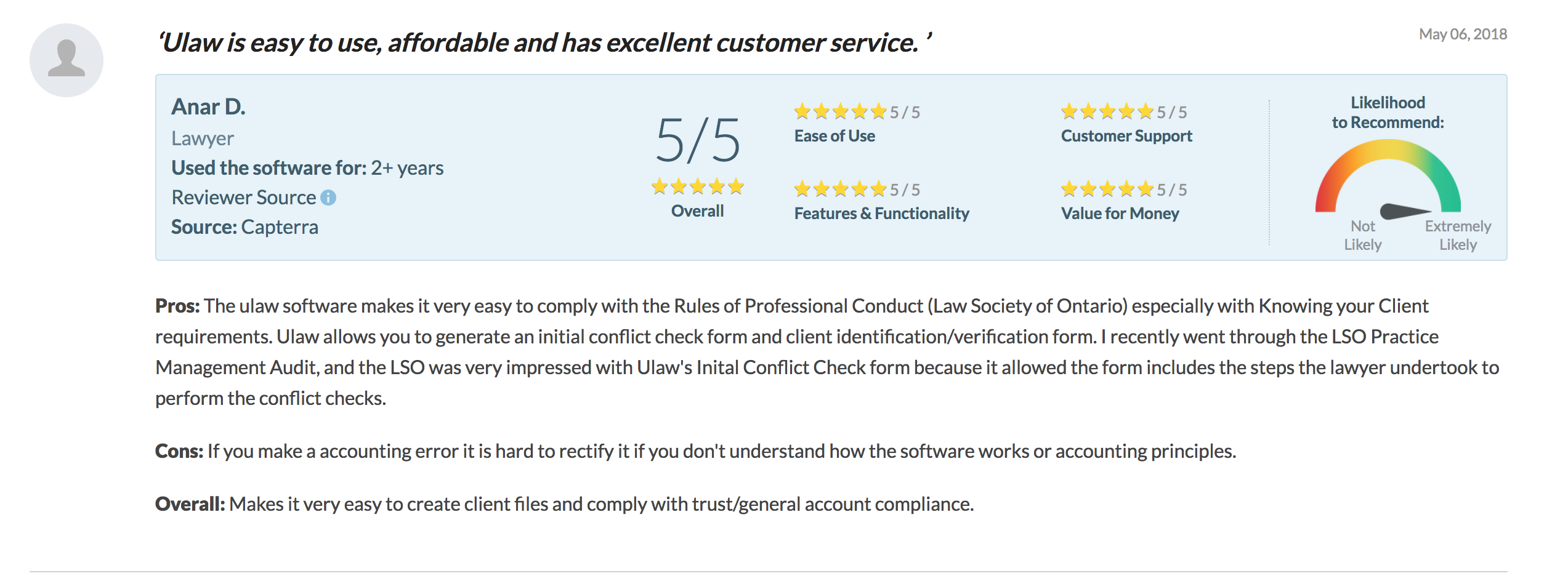Lawyer praises uLaw after Practice Mgmt audit

When the time comes for a lawyer’s firm to be audited, it’s almost always a good idea to have the peace of mind knowing that practice management software is ready to provide the type of thorough, complete, and timely results that an auditor is expecting to see.
"I recently went through the LSO Practice Management Audit, and the LSO was very impressed with uLaw's initial conflict check form,” says Anar D. Since 2016 Anar has been using uLaw to manage her obligations to the law society.
Instead of dreading an upcoming spot audit or practice management observation of your firm by regulators, lawyers and paralegals have the option to safeguard themselves from issues an auditor may encounter when poring over the financial and practice-management related facets to how your firm has been running for the last several years.
Unlike in the past, when specialized software was expensive, legal accounting and practice management software is very affordable for less than $40 each month. To be able to send all documents required to be seen by a legal auditor within minutes is quite the feat--and may well worth the money in terms of labour and peace of mind.
In Anar’s case, she says auditors from the Law Society of Ontario (LSO) were very impressed with the conflict checking feature provided to clients by uLawPractice.
Checking for conflicts is among the swath of legal obligations expected to be taken into great consideration by licensed legal practitioners in Ontario.
Chapter 3 of the Law Society’s Rules of Professional Conduct for Lawyers says that lawyers have a duty to avoid conflicts of interest.
3.4-1 A lawyer shall not act or continue to act for a client where there is a conflict of interest, except as permitted under the rules in this Section.
In the same chapter the LSO also indicates that it is sometimes possible for a lawyer to represent a client while a conflict of interest occurs, even if he or she may be unaware of it.
These types of conflicts of interest can be avoided with software-assisted keystrokes. uLawPractice’s Compliance Coding Team (CCT) has created a system which screens clients during the intake process and self-references a firm’s own previously recorded data to determine potential conflicts of interest that a lawyer can later investigate. If you’re interested in reading about this technology more, click the hyperlink earlier in this paragraph.
uLawPractice would like to thank Anar D for the glowing Captarra review

